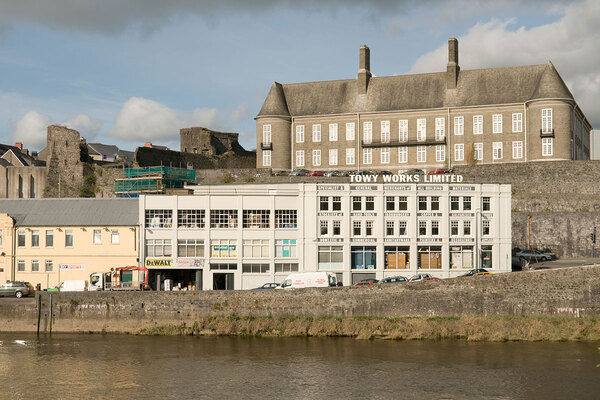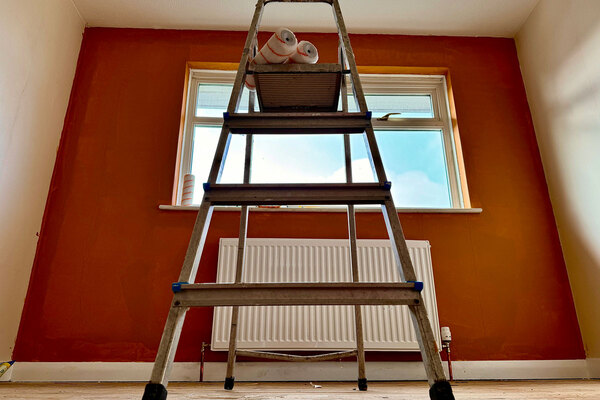You are viewing 1 of your 1 free articles
S&P downgrades five large associations’ credit ratings
Ratings agency Standard & Poor’s (S&P) has downgraded five large associations’ credit ratings over increased sales risk.
L&Q, Metropolitan, Hyde, Notting Hill Genesis and Guinness all saw their ratings decreased in a series of judgements.
In each of its judgements, S&P acknowledged that the move to increased sales risk was “a structural trend” in the social housing sector, but nevertheless expressed its view that such activity made associations more risky investments.
L&Q, Notting Hill Genesis, Guinness and Hyde were all downgraded from A+ to A, but Metropolitan saw its rating fall further, from A+ to A-.
This additional decision, S&P said, was because as well as taking on more sales risk, Metropolitan has decided “to budget additional spending to improve the condition and safety of its stock”.
S&P said this “will likely keep income from social lettings below annual interest spending for the next two to three years”.
Geeta Nanda, chief executive of Metropolitan, said: “Since my appointment in October, the board and I have agreed to carry out a broad programme of improvements and refurbishments at many of the buildings owned by Metropolitan. We have invested in our stock to make our homes safer and better places to live.”
Metropolitan, Hyde and Guinness were all given stable outlooks, meaning S&P thinks their ratings are unlikely to change in the near future. L&Q and Notting Hill Genesis, on the other hand, were given negative outlooks.
In its judgement for Hyde, S&P said: “The stable outlook reflects our expectation that Hyde’s management will continue to efficiently manage its social housing business and cover interest costs from low-risk earnings sources, offsetting the relatively high exposure to real estate market risks.”
For L&Q, though, it said: “The negative outlook reflects our view that high exposure to market-related activities may lead to a material weakening of L&Q’s debt service coverage or liquidity.”
S&P made a similar statement regarding Notting Hill’s negative outlook.
Waqar Ahmed, finance director at L&Q, said: “While we thought this decision from S&P was a possible outcome, we have already responded to market risk. We are focusing on lower pricing points and moving to 60% affordable housing in London, with grant funding from the Greater London Authority.
“We are also expanding outside London through a range of strategic partnerships, including a new partnership with Homes England.”
Philip Day, finance director at Guinness, said: “Our core financial metrics remain strong and this is highlighted in the S&P report. We will ensure that this continues whilst we make the most of our financial capacity and build more homes.
“Our new five-year strategy includes an aspiration to deliver at least 7,500 new homes and at least two-thirds of these will be affordable tenures.’’
In an FAQ published last night, S&P added: “Market sales activities, encompassing first-tranche shared ownership sales, outright sales, and land sales, expose housing associations to cyclicality and a higher level of competition in the residential property development sector.
“We think this reduces the visibility and predictability of future earnings, compared with those of a traditional housing association providing mainly social rent properties, and will reduce headroom to withstand external risks.”
Peter Denton, finance director at Hyde, said: “We understand that a shift in sector outlook underpins the change to our credit rating, which is based on the rating agency’s perceived exposure to selling homes on the open market. Hyde is in a strong financial position since the restructure last year with strong liquidity and £1.5bn of unconstrained assets.
“This financial strength allows us to confidently deliver our build programme. Our social purpose is at the heart of everything we do and we are committed to providing thousands of truly affordable homes for those who need them in London and the South East of England.”
Notting Hill declined to comment on the story.
Update: at 7.42 on 31.7.18 This story was updated to include a comment from Mr Denton.
Update: at 8.54 on 31.7.18 This story was updated to include part of S&P’s FAQ.
Update: at 10.41 on 31.7.18 This story was updated when Notting Hill declined to comment.












